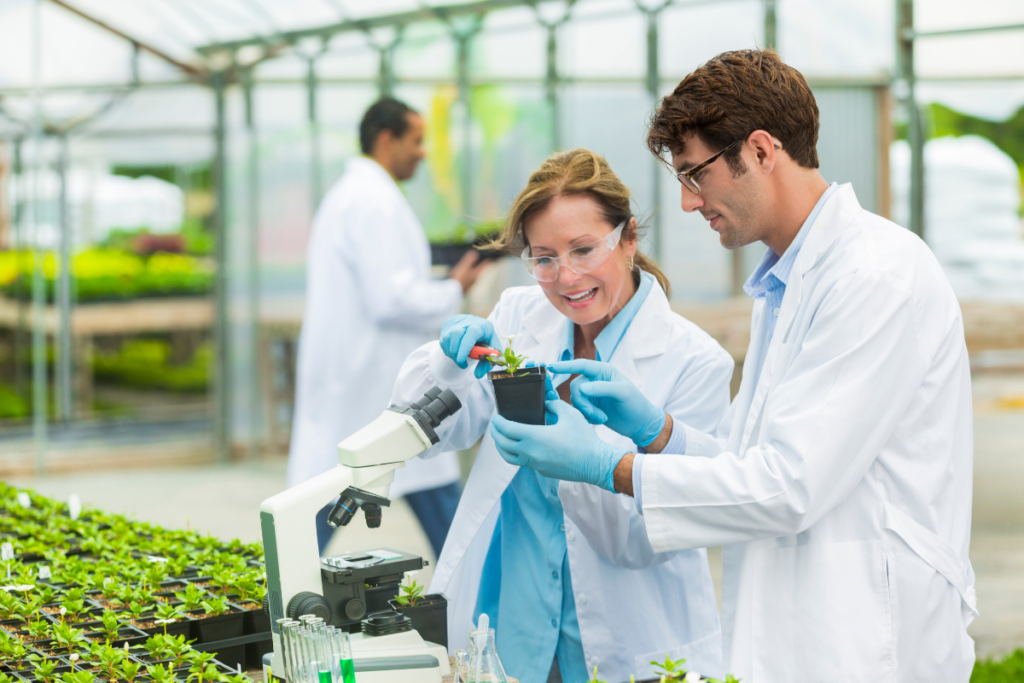How the Dutch Triple Helix Gives Companies a Competitive Edge for Innovation
In the Netherlands, a unique ‘triple helix’ model enables the private sector, government and academia to develop new solutions together
For years, the Netherlands has consistently ranked as a European leader in innovation. The secret? A highly effective approach to collaboration known as the Dutch ‘triple helix’ model. This strategy, coined by Loet Leydesdorff, is a framework for forging partnerships between the private sector, government and academia. Each stakeholder plays a crucial role: knowledge institutions fuel research and expertise, the government supports with favorable policies and businesses bring commercial viability.
In turn, companies benefit by gaining access to world-class knowledge clusters – such as science and innovation parks – with R&D facilities, abundant talent and other industry leaders. Research institutions benefit when businesses help to test scientific knowledge and stimulate entrepreneurship on their campuses. Triple helix partnerships also enable the Dutch government to achieve broader policy goals focused on sustainability and economic growth.
By strategically integrating these stakeholders, the Netherlands fosters an open, collaborative environment that enables companies across various industries to create innovative solutions to global challenges. And it’s not limited to Dutch companies – countless foreign businesses fit seamlessly in the Netherlands and leverage the triple helix.
Read on to explore how the Dutch triple helix approach operates in different sectors, including agrifood, health, technology and clean energy, making the Netherlands a breeding ground for global innovation.
Transforming agrifood innovation
As the world faces challenges in the food chain, the Netherlands is cultivating collaboration between agrifood companies, government and knowledge institutions to make food and agricultural production more efficient and sustainable.
A prime example is Wageningen University & Research (WUR), the world’s No. 1 agrifood university, which acts as a key knowledge partner with numerous companies to transform agriculture from traditional methods to a tech-driven industry. Leading agrifood companies like Unilever, along with agtech innovators like Japan’s Kubota, work together on R&D with Wageningen’s network of research institutes. Another initiative propelling this shift is the AI for Agro-Food lab, a partnership between four Dutch universities of technology and the OnePlanet Research Center. OnePlanet itself is a collaboration between WUR, Radboud UMC and nanotech company IMEC to develop technology-driven food solutions.
Other global companies that are reaping the benefits of the Dutch agrifood landscape include U.S.-based Infinite Acres, with its new collaborative research center in The Hague, and Vivent, a Swiss agtech firm advancing crop health monitoring with Dutch universities and incubators. Japan-based DAIZ is also leveraging this ecosystem by partnering with Dutch innovation center NIZO on hybrid dairy products. These innovations developed in the Netherlands don’t stop at the country’s borders – they have the potential to address global food challenges, further extending the impact of the Dutch triple helix.
Accelerating the digital future
The Netherlands has established itself as a thriving cybersecurity and digital innovation hub. Based in The Hague, Security Delta (HSD) is Europe’s largest security cluster and features more than 300 companies, government bodies and research institutions collaborating on cybersecurity initiatives. HSD is part of a nation-wide ecosystem for public-private cybersecurity partnerships, facilitated by the National Cyber Security Centre (NCSC). This network allows businesses like Taiwan-based Keypasco and U.S.-based Red Trident to develop solutions to stay ahead of rapidly evolving cybersecurity threats.
In addition to cybersecurity, the Netherlands’ triple helix approach shines in its dynamic artificial intelligence landscape. The Dutch government plays a prominent role through its Strategic Action Plan for AI, encouraging companies to pursue diverse AI applications while ensuring positive social impact. The national Innovation Center for AI (ICAI), a collaboration between 18 Dutch knowledge institutions, operates labs throughout the Netherlands to empower companies to develop AI-driven solutions from healthcare to logistics.
Advancing the circular economy and energy transition
The Netherlands is renowned for its commitment to sustainability across every sector. With support from the Dutch government and knowledge networks, global companies in the chemicals and energy sectors are pursuing collaborative projects in the Netherlands for a greener future. In the chemicals industry, Canada-based Aduro Clean Technologies, a chemical recycling pioneer, is transforming waste plastics into valuable resources, in partnership with Brightlands Chemelot Campus and Chemelot Innovation and Learning Labs.
On the energy front, the Netherlands is a living lab for hydrogen and other clean energy fields. The Northern Netherlands hosts Europe’s first ‘Hydrogen Valley,’ with triple helix initiatives like the New Energy Coalition fostering opportunities for global cooperation across the entire hydrogen chain – all concentrated in the Dutch ecosystem. Meanwhile, U.S.-based Air Products has established major hydrogen operations in Rotterdam and The Hague, where it sees public-private partnerships as key to accelerating the global energy transition.
Taking quantum leaps in high-tech
The Netherlands is also a leader in high-tech systems, particularly in fields like quantum technology where triple helix collaboration proves vital. Japan-based Fujitsu provides an example with its presence in the Netherlands: in 2024, the company established a quantum computing lab in partnership with TU Delft, and also announced a collaboration with QuTech on groundbreaking cryogenic technology for diamond-based quantum bits. Fujitsu is one of many companies to work with QuTech, a quantum institute founded by TU Delft and Dutch research organization TNO with significant backing from the Dutch government.
These interconnected collaborations are part of a larger Dutch quantum ecosystem fueled by private innovation, Dutch research networks and active government support. That ecosystem is led by Quantum Delta NL, a national network that leverages the Netherlands’ National Growth Fund to connect and catalyze quantum technology between five major innovation hubs: Delft, Eindhoven, Leiden, Twente and Amsterdam.
Life sciences & health: A step beyond with the quadruple helix
The Netherlands’ life sciences & health ecosystem takes an even broader scope than the triple helix approach, incorporating patients into what is known as the ‘quadruple helix’ model. This inclusion of the end user ensures that healthcare innovations are tailored to real-world applications. The quadruple helix positions the Netherlands as Europe’s connected life sciences & health metropolis, with more than 300 private-public partnerships accelerating cutting-edge health solutions in biopharmaceuticals, oncology, cell therapy, digital health and more.
Siemens Healthineers, a subsidiary of Germany’s Siemens, utilizes the collaborative Dutch environment to transform medical technology. The company cooperates with clinical hospitals and academic centers in the Netherlands, enabling them to test Siemens’ equipment with researchers and patients. Siemens Healthineers works with Dutch universities such as the University of Twente and TU Delft on technical medicine programs, while also collaborating with the Dutch Medical Delta on technological solutions for sustainable care.
Chitomed, already a member of the Smart BioMaterials Consortium in Eindhoven, recently chose Maastricht as the site of its new headquarters to develop medical technology for regenerative medicine in collaboration with universities and clinics in the region. Another example is Türkiye-based Initio Cell’s lab in Leiden BioScience Park, where the company is advancing its transformative organ-on-a-chip technology with immediate access to the Netherlands’ network of life sciences companies, collaborative institutions, business-oriented R&D facilities and supportive government.
Harness the Dutch helix to innovate in the Netherlands
Equipped with the triple helix approach, the Netherlands has built a well-coordinated and successful public-private innovation ecosystem. By combining the strengths of businesses, government and knowledge institutions, the Netherlands offers a unique, thriving environment that enables companies to drive breakthroughs in agriculture, technology, chemicals, energy, life sciences & health and beyond.
Want to learn more about how the Netherlands offers a fertile ground for innovation through collaboration? Contact NFIA to discover how you can leverage the Dutch triple helix to find the right partners and grow your global impact.
15 October 2024


